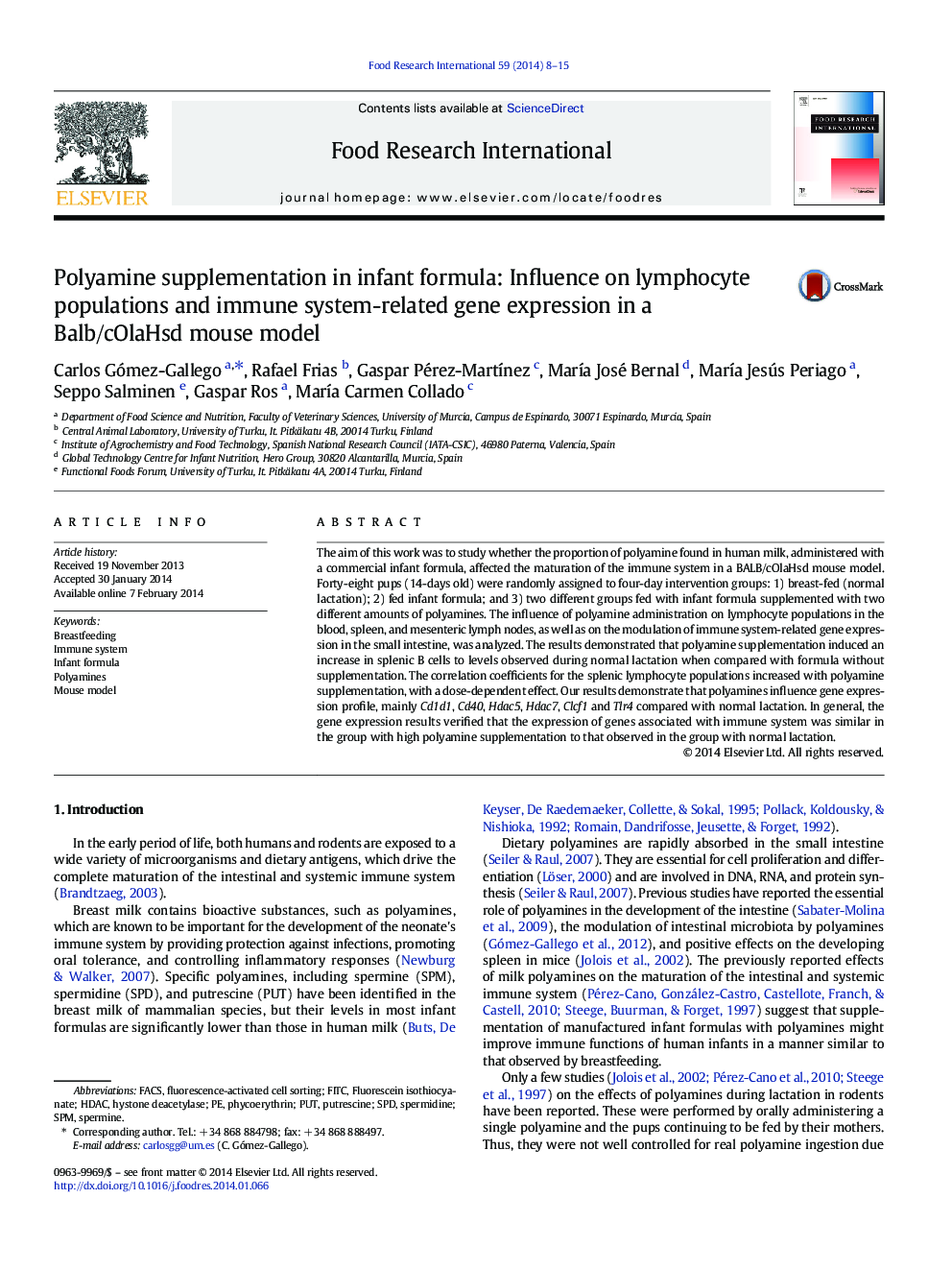| Article ID | Journal | Published Year | Pages | File Type |
|---|---|---|---|---|
| 6396955 | Food Research International | 2014 | 8 Pages |
â¢Polyamines have a role on the maturation of the intestinal and systemic immune system.â¢Polyamine supplementation modulates lymphocyte populations mainly in spleen.â¢Changes in immune cell populations are correlated with changes in gene expression.
The aim of this work was to study whether the proportion of polyamine found in human milk, administered with a commercial infant formula, affected the maturation of the immune system in a BALB/cOlaHsd mouse model. Forty-eight pups (14-days old) were randomly assigned to four-day intervention groups: 1) breast-fed (normal lactation); 2) fed infant formula; and 3) two different groups fed with infant formula supplemented with two different amounts of polyamines. The influence of polyamine administration on lymphocyte populations in the blood, spleen, and mesenteric lymph nodes, as well as on the modulation of immune system-related gene expression in the small intestine, was analyzed. The results demonstrated that polyamine supplementation induced an increase in splenic B cells to levels observed during normal lactation when compared with formula without supplementation. The correlation coefficients for the splenic lymphocyte populations increased with polyamine supplementation, with a dose-dependent effect. Our results demonstrate that polyamines influence gene expression profile, mainly Cd1d1, Cd40, Hdac5, Hdac7, Clcf1 and Tlr4 compared with normal lactation. In general, the gene expression results verified that the expression of genes associated with immune system was similar in the group with high polyamine supplementation to that observed in the group with normal lactation.
